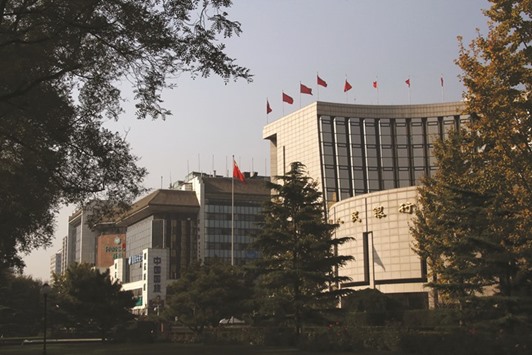Chinese companies cancelled more than four times the amount of bond offerings in April compared with a year earlier, as defaults by state-owned enterprises increased financing costs.
At least 37 Chinese firms postponed or scrapped 35.2bn yuan ($5.4bn) of planned note sales through April 13, compared with nine companies pulling 12.4bn yuan a year ago, data compiled by Bloomberg show.
About half of the cancellations took place this week after state-owned China Railway Materials Co halted its bond trading Monday.
“Credit risk is spiking with recent defaults so the market is in a panic,” said Ji Weijie, a credit analyst at China Securities Co in Beijing. “No one wants to buy low-rated bonds right now.
The China Railway Materials incident has had the biggest impact on the market recently because the company has a high rating of AA+ and it is completely state owned.”
The surge in scrapped offerings reflects growing concern about default risks amid the worst economic slowdown in a quarter century.
Yields on five-year AA- rated local corporate notes have jumped 27 basis points this month, set for the biggest increase in 13 months. Shanxi Jincheng Anthracite Mining Group Co canceled a 2bn yuan bond sale Wednesday and Shandong Heavy Industry Group Co pulled an offering of 1bn yuan of notes on Tuesday.
China Railway Materials said Wednesday it’s seeking to restructure its debt, raising the risk of another default by a state-owned enterprise after Baoding Tianwei Group Co last year became the first government-backed company to renege on onshore bonds.
The company halted trading of a combined 16.8bn yuan of bonds. Sinosteel Co postponed a debt payment earlier this year. At least 62 Chinese firms postponed or scrapped 44.8bn yuan of planned note sales in March, compared with 23 companies with 15.7bn yuan in the year-earlier month, according to data compiled by Bloomberg.
The People’s Bank of China has lowered benchmark interest rates six times since 2014, driving a record rally in the bond market and underpinning a jump in debt to 247% of gross domestic product.
Premier Li Keqiang is seeking to accelerate expansion of the world’s third-biggest corporate note market as Chinese companies struggle with debt payments. Local yuan bond issuance has surged 66% this year to 2.9tn yuan. The ability of listed companies to service their debt has dropped to the weakest on record. Firms generated just enough operating profit to cover the interest expenses on their debt twice, down from almost six times in 2010, according to data compiled by Bloomberg going back to 1992 from non-financial companies traded in Shanghai and Shenzhen.
Rising debt defaults have driven investors to seek opinions from global rating companies, said Kwong Li, head of greater China at Fitch Ratings, which may boost its headcount in Shanghai and Beijing to about 60 from 31 in three years.
“There have been almost zero defaults that generate losses for investors in China,” said Li. “Local governments or other related parties have helped to bail out the defaulted companies.
But over the long term, we will see defaults that result in losses.”

The People’s Bank of China headquarters (right) is seen in Beijing. The PBoC has lowered benchmark interest rates six times since 2014, driving a record rally in the bond market and underpinning a jump in debt to 247% of gross domestic product.
